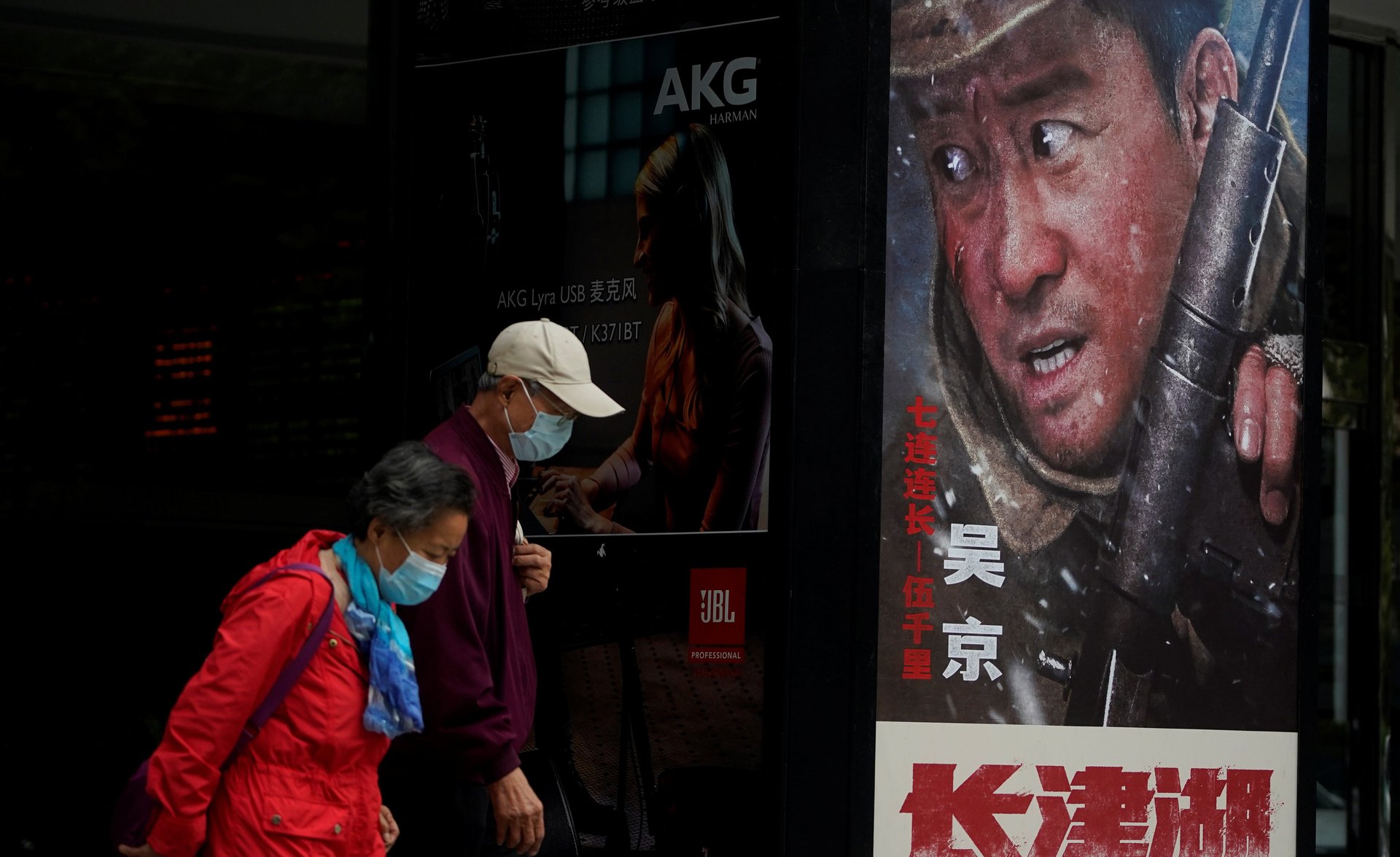“The Battle at Lake Changjin” shows the fading power of Hollywood in China
China’s box-office recovered to close to pre-pandemic levels last year thanks to the success of a state-sponsored patriotic war epic, while Hollywood productions remained out of the picture.


China’s box-office recovered to close to pre-pandemic levels last year thanks to the success of a state-sponsored patriotic war epic, while Hollywood productions remained out of the picture.
The country clocked around 47 billion yuan ($7.4 billion) in film revenues in 2021, according to figures released by the China Film Administration on Jan. 1. That was a big increase from last year, when China’s box office only took in around $3 billion because of the pandemic, and far closer to 2019 revenues of around $9.3 billion. Despite the plunge in 2020, China that year surpassed the US for the first time to become the world’s largest movie market thanks to its effective control of covid at an early stage.
In a sign of the further fading power of Hollywood, or foreign movies in general, the contribution from domestic films towards overall box office revenue reached nearly 85% last year, according to the film administration, the highest share in recent years.
The expanding share of Chinese films is an illustration of the “overall defeat” of imported productions in China last year, wrote Pang Hongbo, a columnist for Chinese film news outlet Yuemu Film Observation. “This situation is not only because of a sharp decrease in the number of overseas films [released] due to the pandemic…but also comes down to the lack of attractiveness of foreign movies, which has shown the shifting taste of [Chinese] film viewers. This means the fading out of imported movies could become a broad trend in China,” wrote Pang.
The Battle at Lake Changjin
is China’s highest-grossing film ever
China began allowing foreign films into the country in 1994 with a cap of importing 34 foreign movies annually. Films produced outside of China (mostly in Hollywood) routinely accounted for more than 40% of the share of the Chinese box office. Foreign movies have spurred an interest in US pop culture among Chinese film viewers, who have flocked to places like the Shanghai Disneyland and the newly opened Universal Studios theme park in Beijing even amid worsening China-US relations.
But with the coming of age of Chinese movie directors and viewers, the country’s own blockbusters began to challenge their Hollywood peers, and have now become the dominant power in China’s film scene. The list of the country’s 10 highest-grossing films of all time is made up of nine Chinese movies and only one Hollywood blockbuster. That was Avengers: Endgame, which was screened in 2019 and ranked in seventh place with $680 million in box office revenues in China, according to Chinese ticketing website Maoyan.
Meanwhile, the Chinese war epic The Battle at Lake Changjin (长津湖 Chángjīn hú), which is about a days-long standoff between American and Chinese forces during the Korean War at the namesake lake in North Korea in the 1950s, sits at the top of the Maoyan list with around $908 million in ticket sales since it opened in September last year. The popularity of the movie reflects rising nationalistic sentiment, which has helped propel other patriotic movies to blockbuster status. The 2017 movie Wolf Warrior 2, about a Chinese special forces soldier, was previously the country’s highest grossing film. However Changjin wasn’t the highest earning movie globally last year—that honor went to Spider-Man: No Way Home, which managed to cross $1 billion in tickets sales in less than two weeks without opening in China.
In Changjin, Chinese soldiers are depicted as a patriotic and pure-hearted group who ate frozen potatoes to survive and were willing to sacrifice for their country at anytime, while their US rivals are portrayed as a bunch spoiled by their advanced military equipment and well-fed with turkey and coffee. Although the war concluded with an armistice,—it is technically not officially ended—Changjin has described the event as a great win for China, which defended North Korea from the US-led United Nations forces. The film’s influence has reached such height that many in China posted videos of themselves eating frozen potatoes as a tribute to the Chinese soldiers to social media platforms.